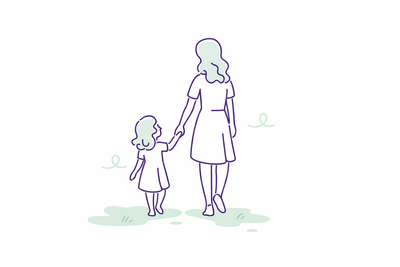
The problem with punishments, briefly, is that they don't teach anything positive. They don't promote ethical growth, responsibility, altruism, or empathy.
Punishments promote:
- Resentment;
- Stress, both for those who receive it and for those who inflict it;
- Finding tricks to avoid being discovered;
- The use of force with friends, because they teach children that that's how you get what you want;
- The urge to lie;
- Egocentrism, thinking almost exclusively of their own interests.
And above all, punishments don't help develop a familiarity with mistakes which in life will always be a lifesaver: mistakes teach that it's okay to get it wrong, to fall and get back up.
Instead of punishing and condemning mistakes, stay by your child's side, ask questions to understand, give them benefit of the doubt, reflect together on how they could have done better or differently.
Shortcuts in parenting don't get us where we want to go. If you want your children to become adults who know balance, empathy, and resilience, punishing for mistakes is not the way to go.
































